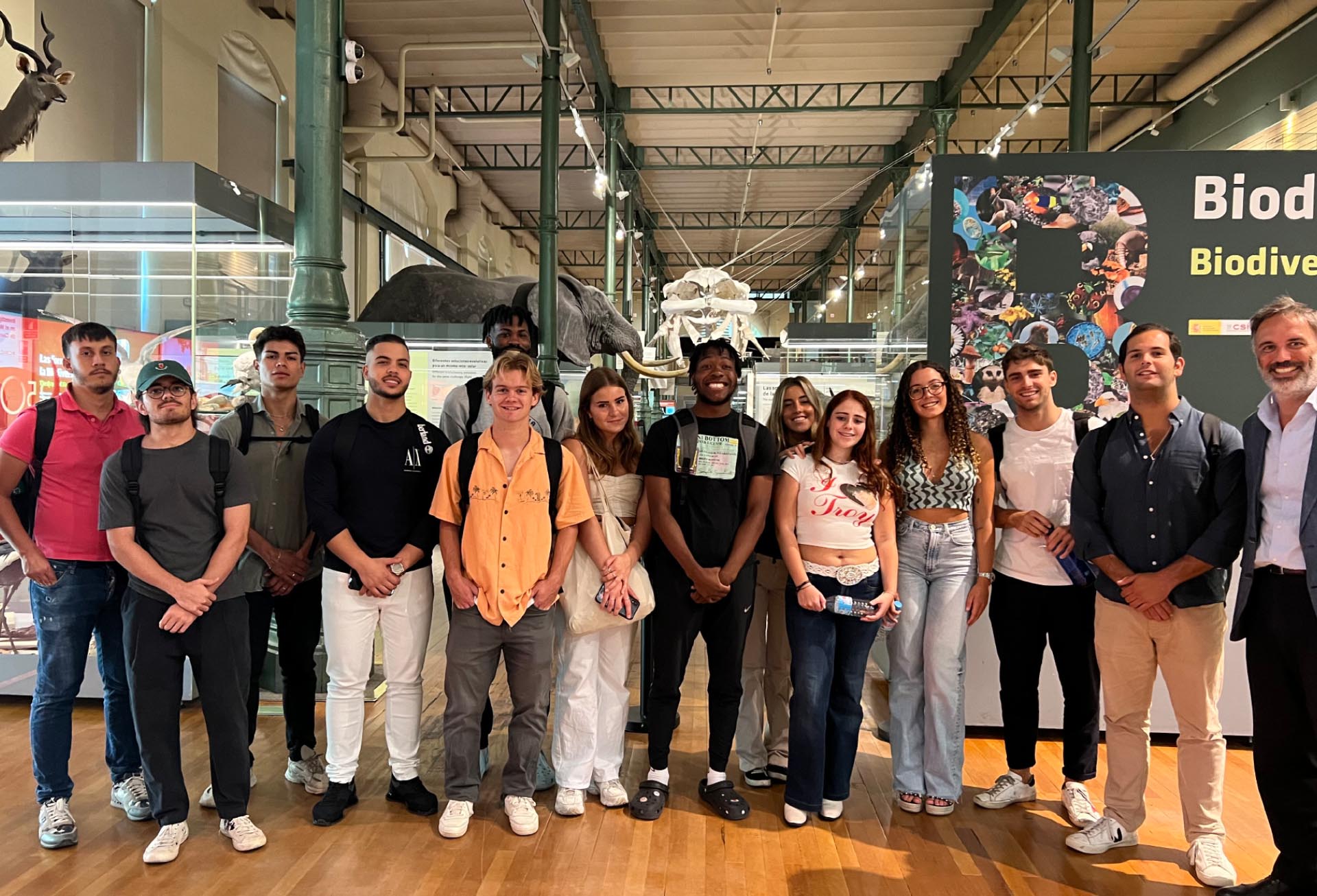Coinciding with the first school week of the semester, Dr. Fernando Dameto led his World Geography class at the National Museum of Natural Sciences. This introductory session of the subject aimed to familiarize students with “how the environment affects the development of its inhabitants and the human process of ordering the natural world.”
To explain the first objective, the temporary exhibition Darwin, A Look that Changed the World, was used, which reflects the trip around the world aboard the Beagle of the young British naturalist and his publication, – already in his maturity, – of the famous and extraordinarily influential “The Origin of Species”. Thanks to the trip and work of Charles Darwin, the students were able to understand how, despite the starting point being common, our environment makes us evolve to adapt to it. This section produced a debate among students about the theories of social Darwinism, that is, natural selection and survival of the fittest and the foundations of eugenics.
For the second question, which involves the different attempts to identify, classify and name the different species of the natural world, the class moved to the space recreated by the Royal Cabinet of Natural History, described by Dr. Dameto himself as “A kind of the Room of Wonders or Cabinet of Curiosities.” In it he could appreciate the enlightened effort of sending scientific expeditions to Spanish America in order to collect objects from the mineral, animal and plant kingdoms. An effort of recognition, classification and dissemination for which the analysis of the work Table of the Civil and Geographic Natural History of the Kingdom of Peru was very useful.
After reflecting and discussing the two spaces visited, the professor closed the activity by pointing out that:
“I trust that this visit will serve as inspiration for a subject that, among its different teaching objectives, explores the different corners of the earth, analyzing the interaction between the natural environment and human societies.”

